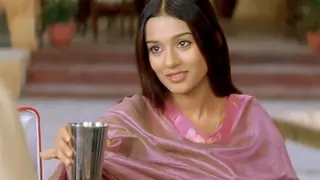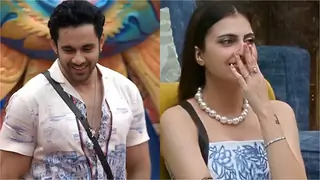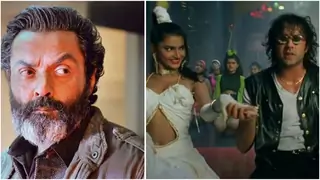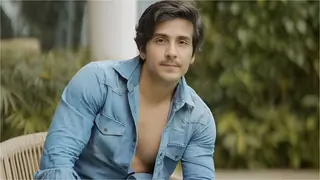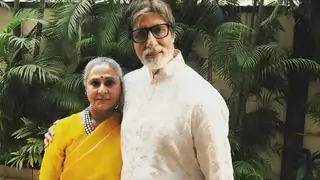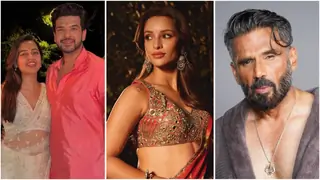| Get Rahmantic: 40 pages from the life of India's Mozart His life story is perfect for a Bollywood blockbuster. A poor boy loses his musician father, becomes a touring tyro musician with maestros like Ilayaraja and Zakir Hussain, manages to study at Trinity College of Music and stuns the world with his marvelous big budget debut. A R Rahman, born A.S. Dileep Kumar might have been a recluse for the longest time. But one peek into his life and you know why. As India's Mozart celebrates his 40th birthday on January 6, we take a look at his life. And not just his music. One of the most fascinating aspects of Rahman's life has to be his conversion to Islam. Though the man has never openly spoken about it, there are two talked about and speculated stories. Rahman is the only son of R. K. Sekhar, an arranger and conductor for Malayalam films. According to one story, his father died when Rahman was nine years old and there after, the family had to face a lot of hardships including renting out musical equipment. It was during this time the family met a Sufi Pir who helped him and his family deal with the obstacles and difficulties in his life. The saint is believed to have helped them spiritually. It was at this point that the family converted their religion. Here's the other version. Apparently one of his sisters fell seriously ill in 1988. All attempts to cure her failed. The condition kept worsening and no one knew where to look for help. They had given up hope until they came in contact with Sheik Abdul Qadir Jeelani or Pir Qadri as he was popularly known. It was with his prayers and blessings that Dileep's sister is believed to have made a miraculous recovery. Influenced by the Pir's teachings, the family converted to Islam. Thus A.S.Dileep Kumar became Allah Rakha Rahman.
Today, he might be a name to reckon with, but the biggest representative of Indian music on the international map had to undergo a lot of trouble and turbulence before making it big. His early days as a musician ensured hands on experience with maestros like Ilayaraja (Hence the influence in his music). At 11, Rahman was a keyboard player for Ilayaraja. Later, he joined the orchestra of M.S. Vishwanathan and Ramesh Naidu. Little later in his career, he accompanied Zakir Hussain and Kunnakudi Vaidyanathan on world tours. It was all this experience that helped him get a scholarship to the Trinity College of Music, Oxford University.
He received a degree in Western classical music. After his stint at Oxford, he returned to Madras to join an ad agency. Jingles won his fancy and after doing over 300 award winning compositions, he met with Mani Ratnam at some award function. Ratnam chose Rahman, then 26, to direct music for his movie Roja. The rest is history. Surely, his international exposure helped him. Apart from majestical, mesmerizing, soothing and soul stirring, the one thing that his music is, is international. Both, Rahman's influences and impact, transcend boundaries, nations and language. It is essential for us to quote Richard Corliss: "His songs were recognizably Indian but paraded a world of musical influences, from raga to reggae, from Broadway to Ennio Morricone, with each tune heightening the film's drama. It was an astonishing debut." Corliss is a fan. Read on to know why. "Soon Rahman received commissions for Hindi films as well as Tamil. Over the next decade his music accompanied, and often transcended, some of the most popular and critically acclaimed Indian films. As South Asians took root around the world and their local movie culture avidly followed them, one could hear Rahman's music even if it didn't puncture the consciousness: as background music in restaurants and posh stores, in the very beat of certain neighborhoods, and of course in the movies that occasionally broke out of Desi ghettos. Tahna Tahna Yahan Pe Jeena, from Rangeela, is a techno-pop explosion, with veteran playback diva Asha Bhosle giving the number a sassily youthful interpretation; her vocal swings its hips. Sun Ri Sakhi, from the movie Hum Se Hai Muqabla, is a lovely lullaby in waltz time, and Saagar Se Milne a ravishing chorale sun by children. In Bombay, Ratnam's Hindi-language smash, the Rahman contributions range from Keyna Hi Kya, with intricate, warm singing by Chitra, to the macho Hamma Hamma, from Kucchi Kucchi Rakkama (which briefly channels Donna Summer) to Kuch Bhi Na Socho, an uptempo technopopper that midway through adds a children's chorus and goes strangely Hawaiian! You needn't see the movies to enjoy the music. The terminally goofy plastic-surgery drama Vishwavidhaata boasts a seductive number, Kal Nahin Tha, with the vocalist Sujatha whispering, then warbling her heart out; the production has a tinge of Phil Spector's early-60s work with the Paris Sisters. The legendary Lata Mangeshkar (she's recorded tens of thousands of songs in her 60-year career) illuminates two Zubeida numbers, So Gaye Hain and Pyaara Sa Gaaon, both with gorgeously elaborate orchestral scoring." After reading all that 'authentic'information, the critics who claim Rahman's genius is all due to his computer skills, can be put to rest. Let's now take a look at Rahman's international venutres. Hollywood innings Andrew Lloyd Webber first heard of the phenomenally talented Rahman while discussing the screen version of Phantom of the Opera with Shekhar Kapur. He was so impressed with the Bollywood music that Kapur was playing. He just knew that he wanted to work with Rahman on Bombay Dreams.
Bombay Dreams, a musical opened on April 29, 2004 and closed on Jan 1, 2004. The music was a hit. Remember the hugely popular Shakalaka Baby number. Rahman had become an international celebrity almost immediately. Winning ventures Chinese director He Ping signed Rahman for his movie Warriors of Heaven and Earth, an adventure that explored the victory of good over evil.
The soundtrack included sixteen in three major languages, Chinese, English and Hindi. Rahman used the eruhu (Chinese violin), duduk (Armenian styled recorder), and taiko drums to create a critically acclaimed soundtrack. Believe it or not, he was compared to Mozart? Sounds of something good Rahman can be accredited for giving the audience something new all the time. Though one can easily differentiate a Rahman soundtrack from an Anu Malik; he's undeniably different. Currently, he's working with the Finnish folk music band Varttina for to compose the music for The Lord of the Rings Musical. It is slated to open in Toronto on March 23, 2006. Hurry up Rahman, we can't wait!
Touring the world Apart from taking on international ventures, Rahman has also done a lot of tours. Here is more good news. Rahman's 'The 3rd Dimension Tours' is slated to be held between Feb and March in the United Stated this year. Even though he comes across as a very shy person, he loves performing on stage. So, look out for his concert. Get ready for some real music! One of the most recent developments in Rahman's life has been the transformation from this shy and hesitant boy to a sure of himself international icon. For the longest time, the genius music composer refused to give interviews and make public appearances. After winning his first acclaimed award as a music director, he simply refused to comment in the post-award section of the programme! The breakthrough came in the form of the Maa Tujhe Salaam video. The inspiring video featured him singing passionately, kneeling down on his knees and running his fingers through his curly hair. It was now, that he started actively participating in his live concerts. Till now, he would exhibit his genius but not let it reflect on his personality. Of course, the new Rahman smiled a lot for cameras, jumped around a bit on the stage, posed for gracious pictures with giants like Andrew Lloyd Webber and gave bytes to desperate TV channels just before going for his Haj visit. Ah! It's very interesting to know how Webber got to know about Rahman. Andrew Lloyd Webber happened to hear Chaiyya Chaiyya - one of Rahman's all time biggest hits till date - one Saturday when Britain's Channel 4 broadcast Dil Se. The song convinced him about the man. Chaiyya opened the second act of Bombay Dreams. Over to his fabulous music now.
Lagaan Rahman was a fitting composer for this Oscar-nominated film that featured a number of chartbusters. While Garaj Garaj and Baar Baar were about the human spirit overcoming everything else, Radha kaise na jale and Ori Gori were tender and playful romantic numbers. Apart from a brilliant cast, script and direction, the music of the movie gets our thumbs up all the way. Bombay The soundtrack of Bombay has everything. While humma pumps you up and gets you on the dancefloor, Tu hi re stirs the deepest chords of your soul and then of course there is Kehna hi kya is possibly one of the most melodious numbers ever. The Bombay theme is a haunting melody that got much critical acclaim. Dil Se Dil Se was the last of Mani Ratnam's trilogy after Roja and Bombay and once again featured Ratnam's favourite - Rahman. Every song in Dil se... was different from the other and each a bigger success than the previous. Rahman himself sung the title track which is still blasted on FM channels across the country. Chaiyya Chaiyya launched Malaika Arora Khan. Pukar Pukar did not do too well on the box office but the film offers some exquisite songs. Kismat se tum humko mile ho is a beautiful song where the music is extremely understated yet is very essential. Que Sera Sera ofcourse went on to become a chart topper, espeically due to Prabhu Deva and Madhuri Dixit's groovy moves. Humrahi jab ho mastana was another playful number. Doli Sajake Rakhna The famous South Indian director Priyadarshan's movie starring Jyotika Sadanah and Akshaye Khanna had only one thing of boast of. It's soundtrack. Since it was a love story, the score was extremely mellifluous. But Rahman managed to strike a balance and put in some peppy numbers as well. From the Kissa Hum Likhenge Dil-e-Bekarar Ka to the brilliant, Tara Rum Pum Pum, Rahman's music simply rocked! Daud The music of Daud was rather experimental, especially the raunchy number Rabba Rabba but then that's what Rahman is known for - his eccentric brilliance. Iruvar Considered to be Mani Ratnam's best directorial venture, Rahman was also applauded for the background score. From the sweet Kannai Katti by Hariharan to the peppy Narumugaye by Unni Krishnan and Bombay Jayshree, the soundtrack was simply amazing. The inclusion of Vishwa Mohan Bhatt's Mohan Veena and the rock guitar enhanced the feel. Jeans The movie had two good things: Rahman's foot-tapping music and Aishwarya Rai. Though the movie didn't do well, but the music was a hit. From the racy Columbus Columbus to the amazing Ajooba by Hariharan and Sadhna Sargam, the movie had chart-topping numbers. He was credited for making his best original score since the movie Sapnay Rangeela What can one say about this movie? Everything about it was just great. And Rahman managed to do a fantastic job once again. His music slipped into the characters so well that it was unbelievable. Remember Ho Ja Rangeela Re, Yai Re and the sensuous number of all times, Tanha Tanha. Rahman proved that he is the unbeatable Sultan of sound. Way to go! Zubeidaa Dheeme Dheeme Gaoon is still as fresh as morning dew in ones memory. Even the very peppy and fast Main Albeli number makes you wanna get up and dance. Mehendi Hai Rachne Wali is an evergreen wedding favourite. Earth Bheeni Bheeni is one of the softer number composed by Rahman and brings out the delicacy of the movie in an understated way. Rut Aa Gaye Re, Bano Rani badi Sayani... All the songs were as good as each other. Roja Nothing more can be said about this matserpiece debut. It's beacuse of Roja that Rahman is Rahman. Sapnay The movie faded away like a dream. But its music still lingers on. The music could be best described as youthful, soul-stirring and romantic. Each composition was more beautiful than the other; from the up-tempo Strawberry Aankhein, the immensely popular Aawara Bhanware by Hema Sardesai to the naughty Ek Bagiya Mein, his music was just incredible.
Kisna This was Rahman in a new form. Woh Kisna Hai, the title track is typically melodious, not the Rahman way though. The Subhash Ghai-Rahman pairing worked and we are sure to see more of it in the future.
Taal No words can do justice to the outstanding music of Taal. The title track is one of his most experimental yet hummable tunes. Rumta Jogi was again a pathbreaking song and no other song has repeated it's magic again. Is toote dil ki peed saw Aasha Bhonsle and Rahman come together in a sizzling performance-oriented song and Ishq Bina was a haunting melody which showcased the range just one song can have. Thakshak The music of Thakshak has a charcater of its own. Director Govind Nihalani was very sure he wanted Rahman to do the music. The film gave Tabu
Rang De and the Jhumba Lika to the item number freaks. The soulful Boondon Se Batein was trademark Rahman. Happy Birthday Rahman!
Thiruda Thiruda After Roja Mani Ratnam and Rehman jodi came up with Thiruda Thiruda. The music of Thiruda Thiruda was an instant hit with it's fresh, risky and experimentative style. Indian film industry had not heard music like that before and Rehman's creation had everyone dancing on their toes. He gave to India music that was vibrant, shocking, thundering, ,peppy and lots more. Here's saluting Rehman for intro | 





 AR Rahman was a household name overnight. The music was lapped up by the young and old alike and Rahman became the most sought after music director in the South. The freshness in his music, modern sound and the electronic feel came in as a fresh breeze of air that was cool and soothing. Rahman bagged every existing award including the Rajat Kamal (National Award), first ever by a debutant. AR Rahman had arrived on the scene and with the tremendous potential he possessed it was crystal clear that he was here to stay. Among the young musicians Rahman is probably the most original and he combines melody and electronic sounds so amicably that he ends up giving his score a rich tonal texture and an astounding contemporariness. Rahman formulated a style and musical pattern that was followed by many, in the years to come. He redefined film music and changed the entire way of creating and presenting it that was unheard of, before his emergence.
AR Rahman was a household name overnight. The music was lapped up by the young and old alike and Rahman became the most sought after music director in the South. The freshness in his music, modern sound and the electronic feel came in as a fresh breeze of air that was cool and soothing. Rahman bagged every existing award including the Rajat Kamal (National Award), first ever by a debutant. AR Rahman had arrived on the scene and with the tremendous potential he possessed it was crystal clear that he was here to stay. Among the young musicians Rahman is probably the most original and he combines melody and electronic sounds so amicably that he ends up giving his score a rich tonal texture and an astounding contemporariness. Rahman formulated a style and musical pattern that was followed by many, in the years to come. He redefined film music and changed the entire way of creating and presenting it that was unheard of, before his emergence.  now diverted to other genres and his forthcoming RANG DE BASANTI's soundtrack is already picking up. RDB is a youthful movie starring Aamir Khan and the songs are designed to fit the mood of the film and after listening to them one must say that Rahman has done an absolutely terrific job. Rahman had earlier done the music for RANGEELA that also starred Aamir Khan and Urmila and was directed by Ram Gopal Varma. RANGEELA was a love story and was an urban film and needless to say both the movie and the music were amazingly successful. . One must confess that right now AR Rahman is at its best; remember SWADES? The soulful rendition of the title song still haunts us and instills that feeling of patriotism. The heartfelt 'Yeh Tara Woh Tara' fetched Udit Narayan a National Award for Best Playback SInger.
now diverted to other genres and his forthcoming RANG DE BASANTI's soundtrack is already picking up. RDB is a youthful movie starring Aamir Khan and the songs are designed to fit the mood of the film and after listening to them one must say that Rahman has done an absolutely terrific job. Rahman had earlier done the music for RANGEELA that also starred Aamir Khan and Urmila and was directed by Ram Gopal Varma. RANGEELA was a love story and was an urban film and needless to say both the movie and the music were amazingly successful. . One must confess that right now AR Rahman is at its best; remember SWADES? The soulful rendition of the title song still haunts us and instills that feeling of patriotism. The heartfelt 'Yeh Tara Woh Tara' fetched Udit Narayan a National Award for Best Playback SInger. 


